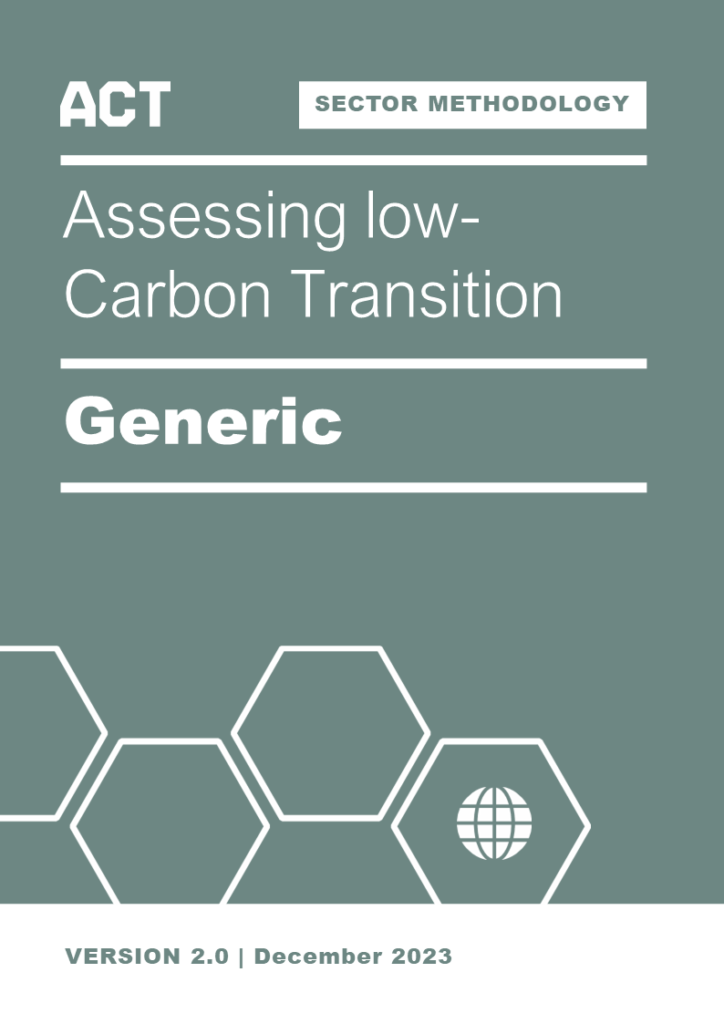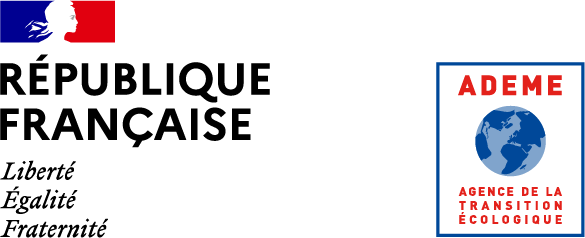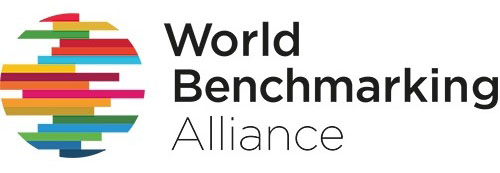The ACT Generic methodology was first published in 2021 to assess companies not covered by any sectoral methodologies within the set developed by the ACT initiative. The ACT Generic methodology has been updated to ensure it remains cutting-edge in its ambition, relevance, and comprehensiveness.
You can find the updated version of the ACT Generic methodology here.
The World Benchmarking Alliance has used this updated version (v2.0) to assess 11 Capital Goods companies within its 2023 Electric Utilities Benchmark.
What was the process for updating the Generic Methodology?
A public consultation was launched on the 19th of June 2023 for 2 weeks. The targeted audience was mainly composed of stakeholders already involved in the methodology development process and ACT users.
This public consultation ensured that the ACT Generic methodology reflects the most relevant topics to the sector’s low-carbon transition through the expertise of all participants.
Weekly meetings gathering WBA, ADEME, and CDP allowed to conduct the update process. Testing has been used to assess the relevancy of some updates brought to quantitative performance indicators by CDP.
What changes are brought to the methodology?
Harmonisation modifications have been made to align the methodology with the latest versions of indicators:
- ‘Qualitative’ modules refreshed according to latest versions available published in 2022 (modules 5-8) and 2023 (module 9).
- In module 1 (Targets), implementation of the split between short- and long-term targets in the indicators assessing the ambition alignment of targets with companies’ low-carbon pathways, to better align with the Science-Based Targets initiative (SBTi) recommendations.
- In module 3 (Immaterial investment), research and development (R&D) spending is calculated as an average over the last 3 years
Companies’ direct emissions can now be assessed using an absolute emissions reduction pathway, calculated thanks to the Absolute Contraction Approach developed by the SBTi.
In module 4 (Sold product performance), the indicator about the share of low-carbon products/services has been removed, as it overlapped with the updated indicator 9.1 Revenue from low-carbon products/services. A new indicator allows to assess the alignment of companies’ locked-in emissions related to sold products, with the allocated carbon budget regarding these emissions. This indicator is triggered only for companies selling ready-to-use products with a long lifespan whose use leads to GHG emissions representing a significant share of the company’s overall GHG emissions, e.g. transport, industrial process, and household equipment.
The complementarity between the ACT Generic methodology and the set of ACT sectoral methodologies has been clarified.



